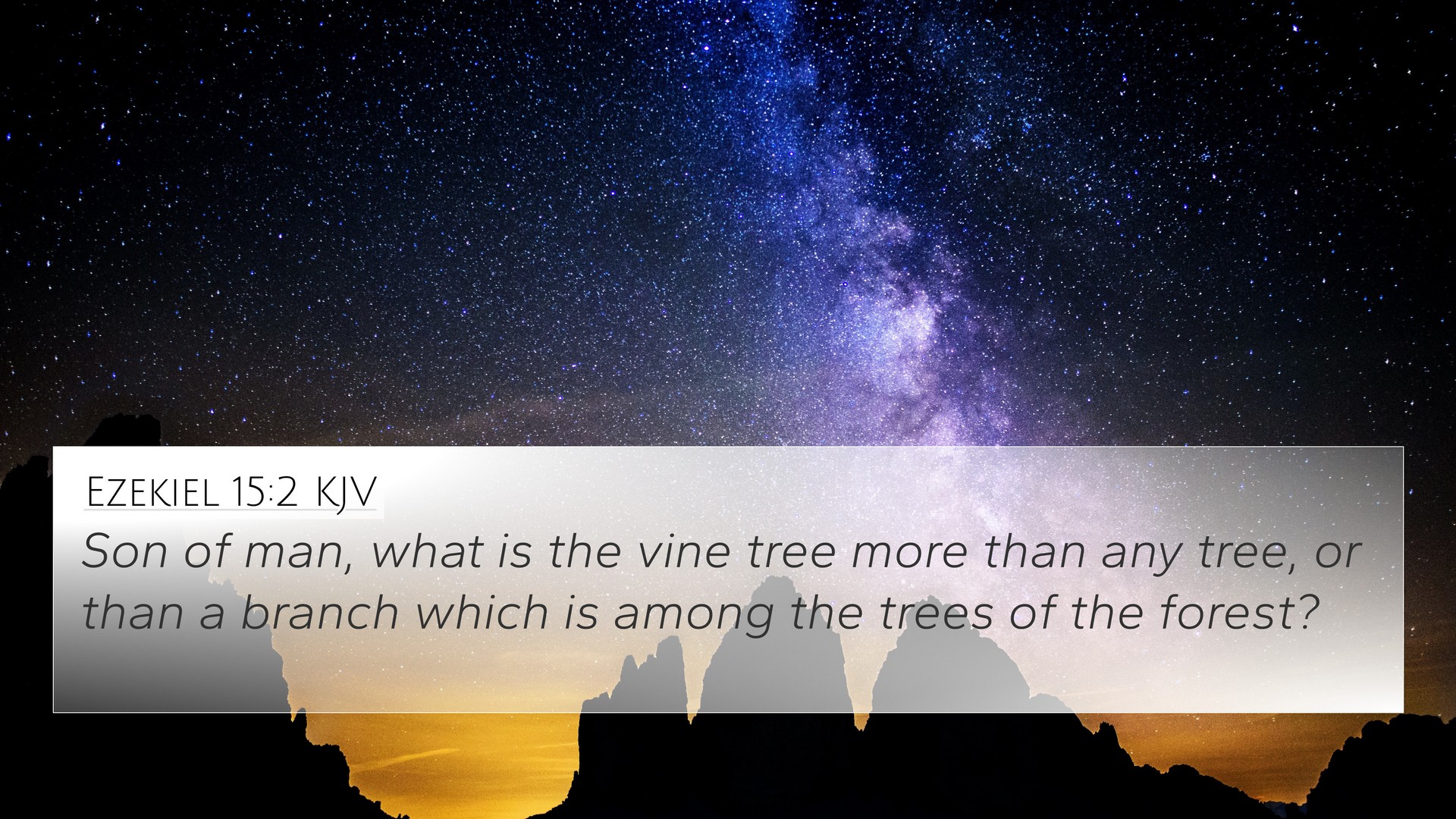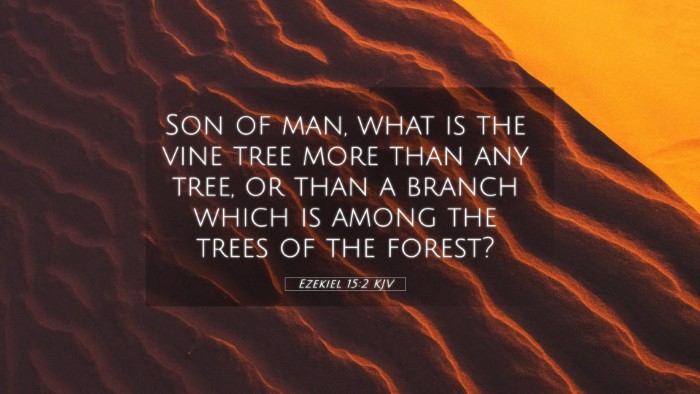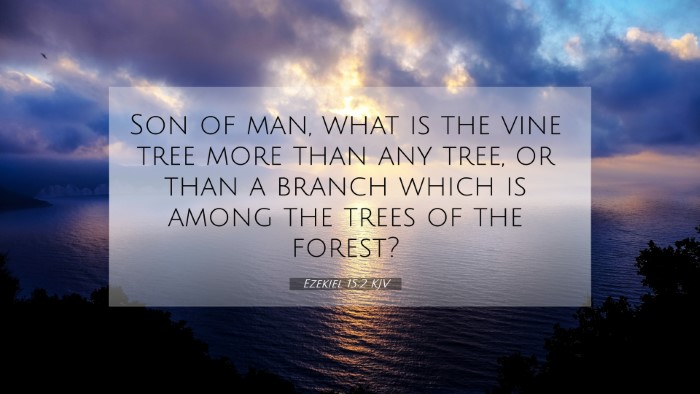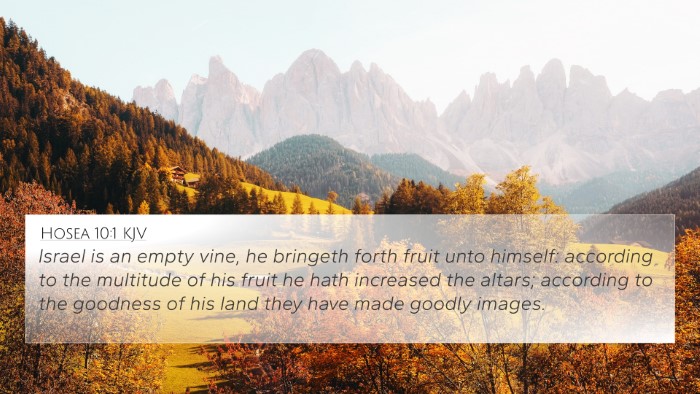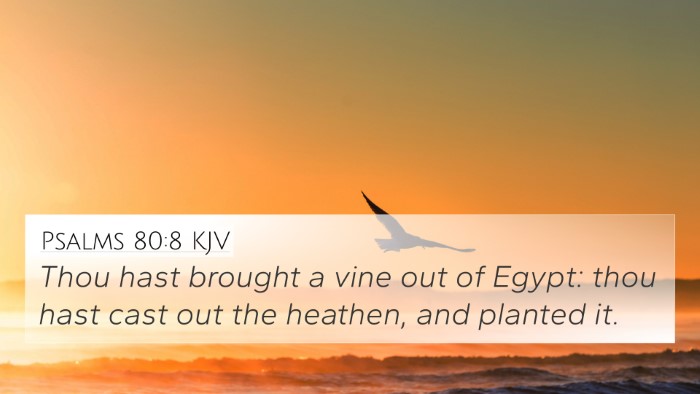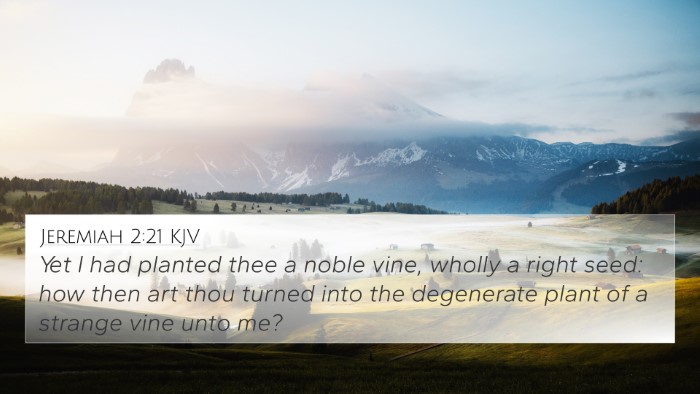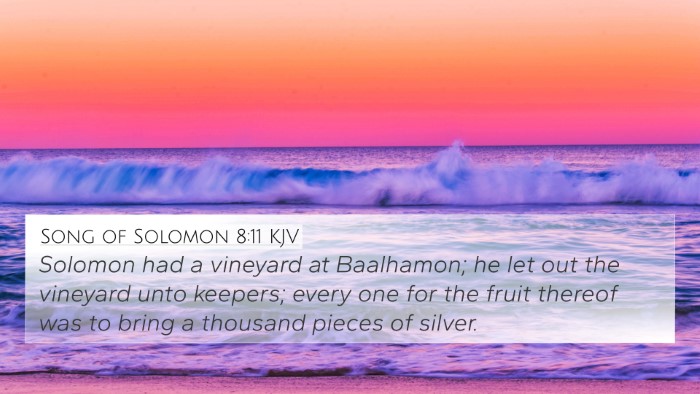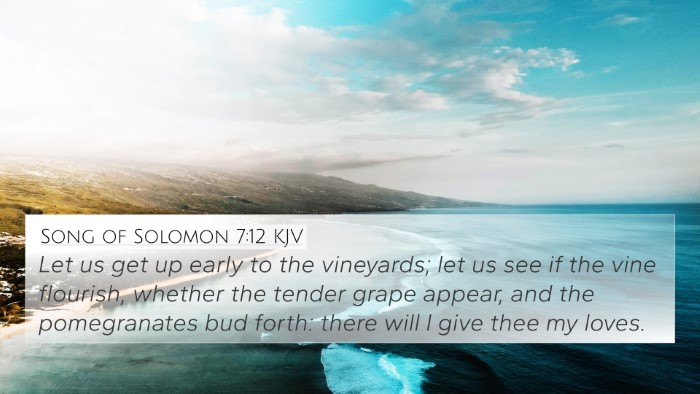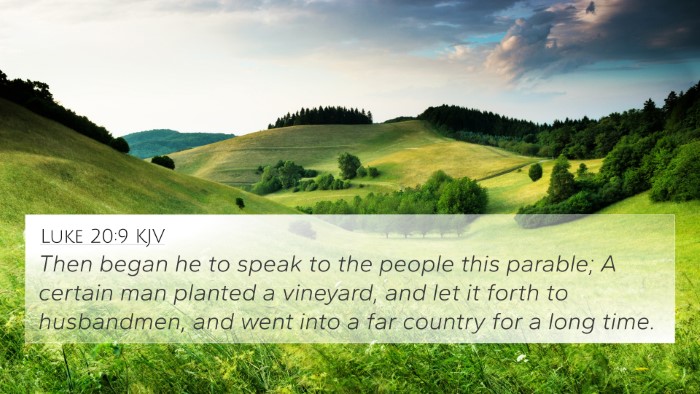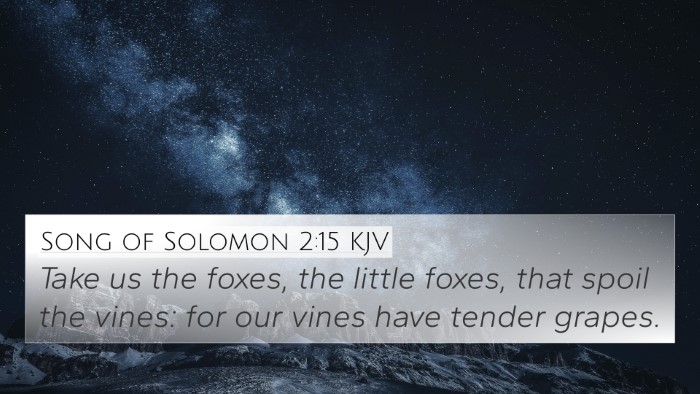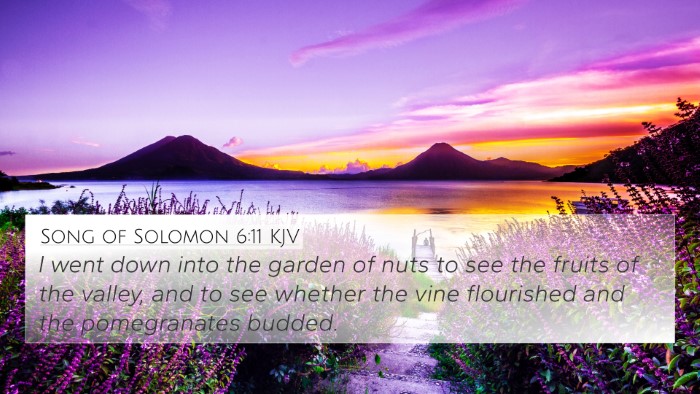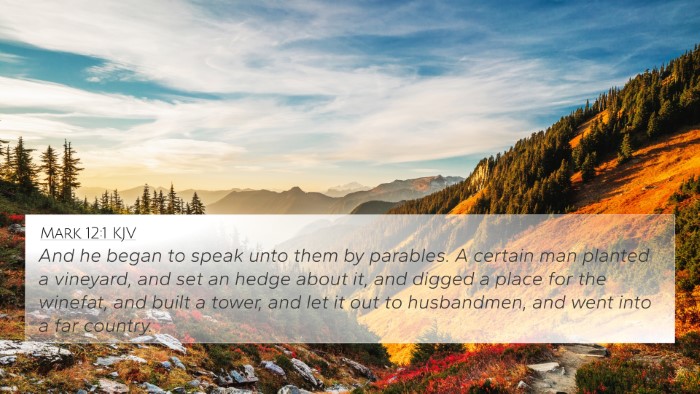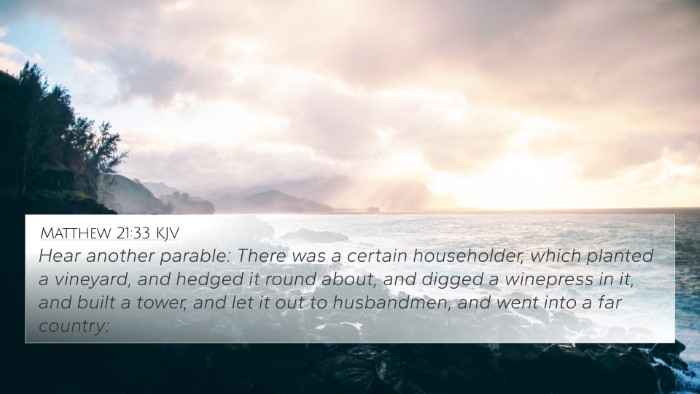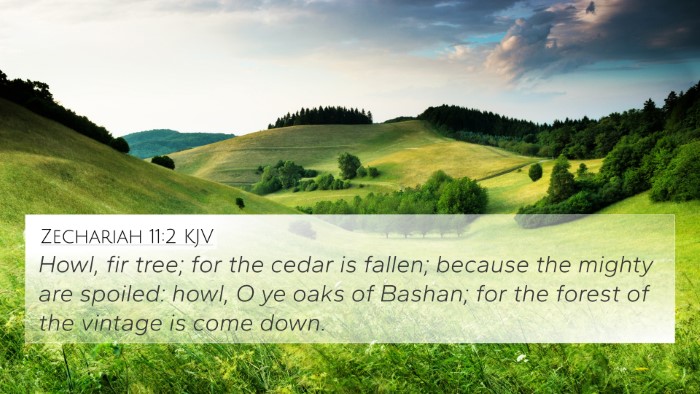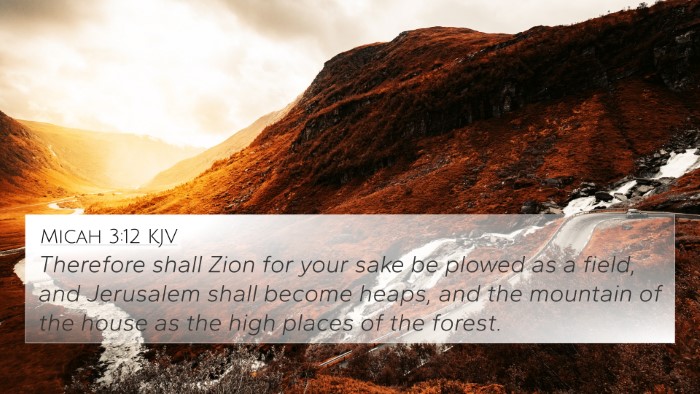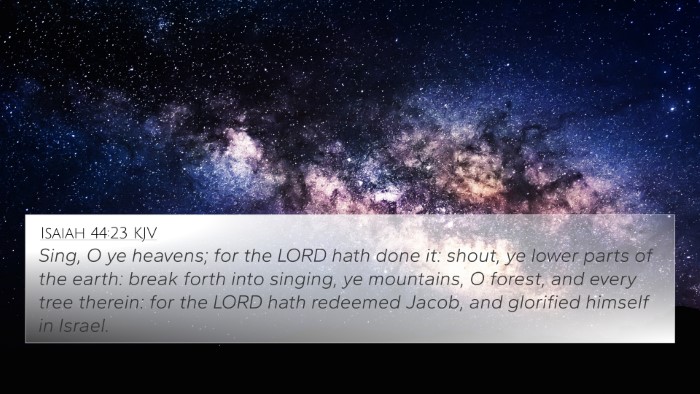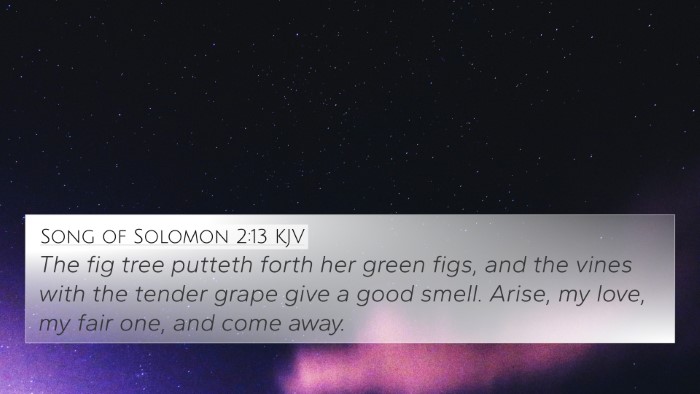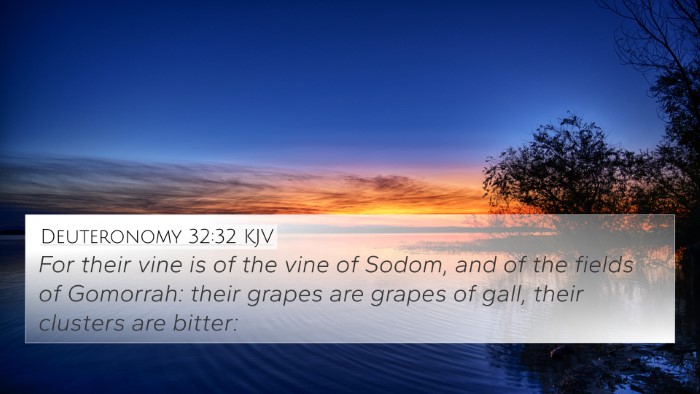Ezekiel 15:2 - Summary and Commentary
Bible Verse: "Son of man, what is the vine tree more than any tree, or than a branch which is among the trees of the forest?" (Ezekiel 15:2)
Meaning and Interpretation
This verse from Ezekiel serves as a rhetorical question posed by God to the prophet, highlighting the unique role of the vine in relation to other trees. The metaphor of the vine tree is significant in biblical literature and provides a profound understanding of spiritual fruitfulness and dependence on God.
Insights from Public Domain Commentaries
Matthew Henry: Matthew Henry emphasizes that the vine, though a humble tree, possesses unique qualities that distinguish it from other trees. It bears fruit that is vital for nourishment and is useful for making wine, which symbolizes joy and celebration. Henry suggests that God is pointing out the inadequacy of Israel, who is compared to a vine that bears no fruit.
Albert Barnes: Barnes elaborates on the significance of the vine symbolically, noting that vines require care and are often associated with cultivation. He illustrates that if the vine fails to produce fruit, it is ultimately rejected, emphasizing God's expectation for His people to be fruitful in their spiritual lives. This verse may indicate the impending judgment on Jerusalem for its unfruitful state.
Adam Clarke: Adam Clarke takes note of the characteristics of the vine, its growth patterns, and its need for support and cultivation. Clarke points out that the vine's purpose is not just for ornamentation but is essential for producing valuable fruit. He emphasizes that this serves as a warning to Israel, who must recognize their reliance on God for sustenance and spiritual vitality.
Thematic Connections
This verse connects with various themes prevalent in the Bible, especially emphasizing the idea of spiritual fruitfulness and God's expectations. Below are some key thematic connections:
- Spiritual Vine Metaphor: John 15:1-8, where Jesus states, "I am the true vine," elaborates on the vine's significance in emphasizing the relationship between believers and Christ.
- Fruitfulness: Galatians 5:22-23 discusses the fruits of the Spirit, connecting to the need for true believers to reflect Christ-like qualities.
- Judgment and Expectation: Jeremiah 2:21 mentions Israel as a "choice vine," emphasizing the expectation for productivity and the consequences of failing to meet those expectations.
- Dependency on God: Psalm 80:8-9 portrays Israel as a vine brought out of Egypt, made to grow and flourish with divine support.
- Destruction of the Unfruitful: Matthew 3:10 warns that every tree that does not bear good fruit is cut down and thrown into the fire, aligning with the theme of divine judgment on unfruitfulness.
- The Care of the Gardener: Isaiah 5:1-7 features a song about a vineyard, illustrating God's care and the disappointment arising from unfruitfulness.
- Restoration and Hope: Ezekiel 36:8 discusses the restoration of the land, portraying hope for a renewed vine (Israel) after judgment.
Cross-Referencing Biblical Texts
The beauty of scripture lies in its interconnectedness. Ezekiel 15:2 serves as a pivotal point for understanding many other verses. Here are seven to ten significant Bible cross-references related to this verse:
- John 15:1-2: "I am the true vine, and my Father is the gardener." This reinforces the imagery and emphasizes the relationship of Jesus as the source of life.
- Isaiah 5:1-2: The song of the vineyard represents God's disappointment with unfruitful Israel.
- Matthew 7:19: "Every tree that does not bear good fruit is cut down and thrown into the fire." This reiterates the fatal consequences of unfruitfulness.
- Romans 11:17-21: Paul discusses Israel as the original vine and the implications of being grafted into the faith.
- Galatians 5:22-23: Discusses the fruits of the Spirit, which connect with the expectation of Christians bearing good fruit.
- Psalm 80:8-11: This passage recalls God's nurturing of Israel as a vine, linking it back to the importance of divine care and expectation.
- Hosea 10:1: "Israel is an empty vine," further emphasizing the theme of unfruitfulness and God's judgment.
Conclusion
The message of Ezekiel 15:2 is clear: God desires His people to be like a fruitful vine, to bear spiritual fruit, and to be a source of nourishment and joy. The cross-references provide a deeper understanding of this expectation and highlight the importance of a genuine relationship with God, characterized by faithfulness and productivity. As we study these connections through the lens of various commentaries, we gain insight not only into God's expectations for ancient Israel but also for us today.
Tools for Bible Cross-Referencing
Engaging in cross-referencing can deepen our understanding of scripture. Here are some tools that can assist in this endeavor:
- Bible Concordance: A useful resource for finding specific verses based on keywords.
- Cross-Reference Bible Study Guides: These aids help identify thematic connections across different verses.
- Comprehensive Bible Cross-Reference Materials: Such materials enable extensive study of related scriptures.
- Online Bible Reference Resources: Many websites provide tools for cross-referencing Bible verses for deeper study.
